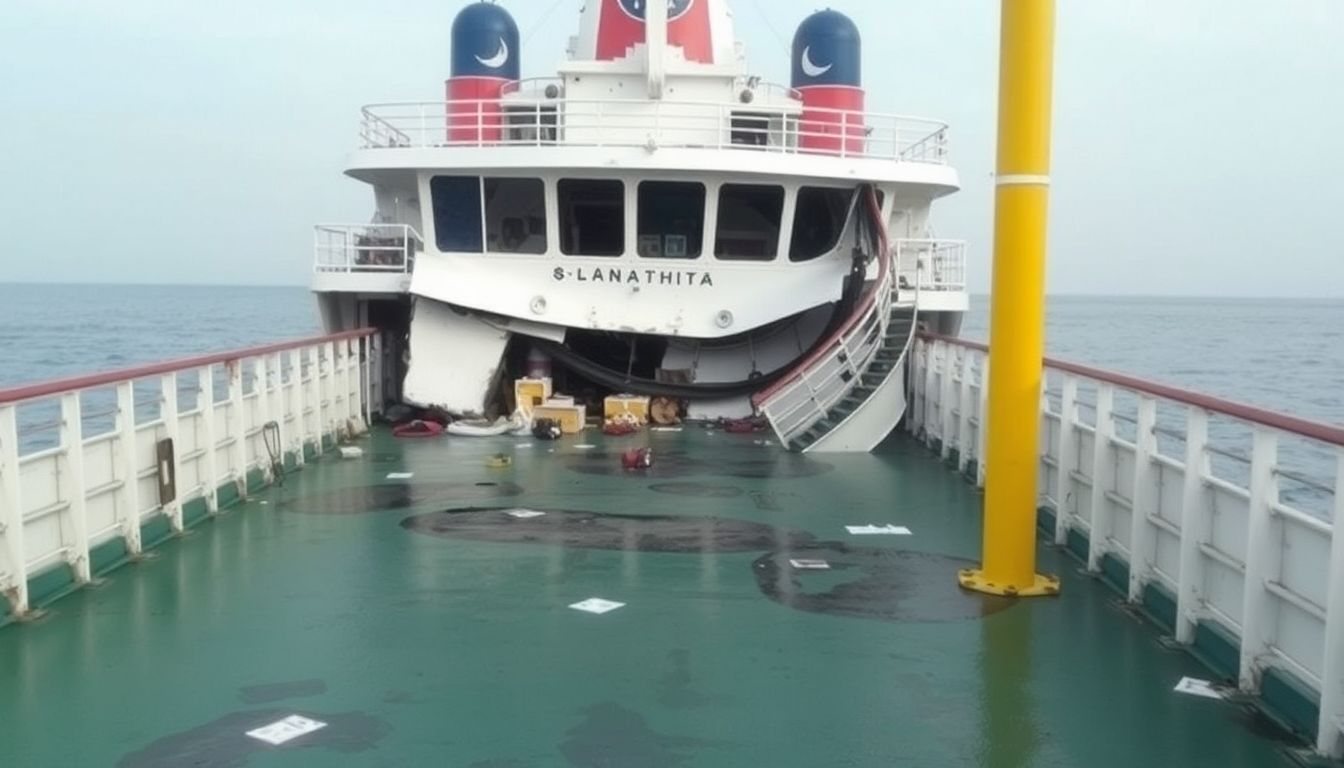Ferry accidents can leave victims confused about their legal rights. Each year, hundreds of people suffer injuries in ferry incidents across the U.S. This article will explain your options after a ferry accident and how to protect your rights.
Learn how to seek fair compensation for your injuries.
Key Takeaways
- Ferry accidents can cause serious injuries like burns, broken bones, and brain damage. Victims have legal rights to seek compensation for medical bills, lost wages, and pain.
- The Jones Act protects seamen who work on ships, allowing them to sue employers for negligence or unsafe vessels. It covers workers who spend at least 30% of their time on navigable waters.
- Victims usually have 3 years to file general maritime injury lawsuits, but time limits vary. U.S. government vessel injuries require notice within 22 months and a lawsuit within 2 years.
- Choosing the right maritime lawyer is crucial. Look for specialized experience, a strong track record, and clear communication skills. Many offer free initial consultations.
- Ethen Ostroff Law and Montagna Law offer free case reviews for ferry accident victims. These firms have won millions in compensation, including a $10 million award for a harbor worker with brain injury.
Common Types of Ferry Accidents

Ferry accidents come in many forms, each posing unique risks to passengers and crew. Collisions with other vessels or port structures can cause severe damage and injuries. Cargo-related mishaps often lead to dangerous situations, especially when hazardous materials are involved.
Falls on deck are frequent, resulting from slippery surfaces or sudden ship movements. In rare but catastrophic events, ferries may sink due to structural failures or extreme weather conditions.
Loading accidents present another serious threat. These can cause carbon monoxide buildup, putting everyone on board at risk of poisoning. Unsafe ramps and poorly maintained walkways contribute to slip and trip incidents, which are among the most common ferry accidents.
Our firm has handled numerous cases involving these types of accidents, giving us direct experience in handling the intricacies of maritime law.
Safety at sea is paramount. Every passenger deserves a journey free from preventable accidents and injuries. – Maritime Safety Expert
Injuries Resulting from Ferry Accidents
Ferry accidents can cause serious harm to passengers and crew. Common injuries include burns, sprains, broken bones, and amputations. These injuries often lead to long-term pain and disability.
Our team has seen firsthand how traumatic brain injuries, crushing injuries, and toxic exposure can change lives forever. Crew members face extra risks from slippery decks and dangerous materials on board.
Severe cuts and broken bones happen often in ferry crashes. We’ve helped many clients who suffered these painful injuries. Some people lose limbs or get burned badly. Brain damage can occur if someone hits their head or goes without oxygen.
Each case is unique, but all injuries from ferry accidents need proper care and legal support.
Knowing Your Legal Rights After a Ferry Accident
After a ferry accident, you have legal rights to protect yourself. You can file a lawsuit against the ferry operator if you got hurt. This lets you get money for medical bills, lost wages, and pain you went through.
Our firm has helped many victims recover damages after ferry crashes. We know how to prove the operator was at fault and get fair compensation.
Family members also have rights if a loved one died in a ferry accident. They may be able to get money to cover funeral costs and lost income. It’s key to talk to a lawyer fast after an accident.
They can guide you on what to do next and make sure you don’t miss key deadlines. The next step is learning about filing a maritime lawsuit.
Filing a Maritime Lawsuit
Filing a maritime lawsuit requires careful planning and legal expertise. Maritime laws differ from standard personal injury cases, making it crucial to understand the process.
- Gather evidence: Collect all relevant documents, photos, and witness statements related to the accident.
- Consult a maritime attorney: Seek legal advice from a lawyer specializing in maritime law to assess your case.
- Determine jurisdiction: Identify the proper court to file your lawsuit, which may be federal or state court depending on the accident’s location.
- File a complaint: Submit a formal legal document outlining your claims and damages to the court.
- Serve the defendant: Notify the responsible party of the lawsuit through official legal channels.
- Discovery phase: Exchange information with the defendant’s legal team, including depositions and document requests.
- Negotiate settlement: Attempt to reach an agreement with the defendant before trial.
- Prepare for trial: If settlement fails, work with your attorney to build a strong case for court.
- Present your case: Argue your claims before a judge or jury, presenting evidence and witness testimony.
- Await verdict: The court will decide on liability and potential compensation.
- Consider appeals: If necessary, explore options for appealing the court’s decision.
The Jones Act and Your Rights
The Jones Act protects seamen who work on ships. This law covers workers who spend at least 30% of their time on navigable waters. It allows injured sailors to sue their employers for negligence or unsafe vessels.
The Act gives sailors more rights than regular workers’ compensation laws. Sailors can claim lost wages, medical costs, and pain and suffering damages.
Family members also have rights under the Jones Act. They can file wrongful death claims if a sailor dies from work-related causes. The law aims to keep employers responsible for crew safety.
It pushes companies to maintain seaworthy ships and provide proper training. Sailors hurt on the job should talk to a maritime lawyer about their Jones Act rights.
Compensation Under Maritime Laws
Maritime laws offer specific rules for compensation after ferry accidents. Victims can seek money for medical bills, lost wages, and pain. The Public Vessels Act lets people sue the U.S. Government for injuries on ferries.
But you must prove the government was careless. Time matters in these cases. You have two years to file a claim after the accident happens. Our firm has won big payouts for clients hurt on boats.
We got $1,000,000 for someone who slipped and fell. Another client received $1,060,000 after a forklift accident. These wins show how much money you might get for your injuries.
Punitive Damages in Ferry Accident Cases
Punitive damages in ferry accident cases aim to punish wrongdoers and prevent future negligence. The Supreme Court’s 2009 ruling in Atlantic Sounding Co. v. Townsend allows injured seamen to seek these damages if employers fail to provide maintenance and cure payments.
This decision clarified that punitive damages are permissible under general maritime law.
Courts have varied in their rulings on punitive damages for unseaworthiness claims under the Jones Act. Injured parties may pursue these damages to hold negligent parties accountable and secure fair compensation.
The next section will explore who can be held liable in ferry accident cases.
Who Can Be Held Liable?
Ferry operators bear the main burden of liability in accidents. They must meet a legal duty of care to keep passengers safe. This duty covers proper boat maintenance, safety equipment, and trained crew.
If operators fail in these areas, courts may find them negligent. Passengers hurt due to negligence can sue for damages. Crew members also have rights under maritime laws like The Jones Act.
Other parties may share blame too. Boat manufacturers could be liable for faulty parts. Maintenance companies might be at fault for poor repairs. Even other passengers could face lawsuits for reckless actions that cause harm.
Each case needs careful review to identify all responsible parties. Lawsuits often target multiple defendants to ensure full compensation. The next section will explore time limits for filing ferry accident claims.
Statute of Limitations for Filing Claims
After determining who can be held liable, it’s crucial to understand the time limits for filing claims. Statute of limitations set strict deadlines for legal action. For general maritime personal injury lawsuits, victims have 3 years from the injury date to file.
This timeframe changes for specific cases. U.S. government vessel injuries require written notice within 22 months and a lawsuit within 2 years of the accident. Cruise ship injuries often have a shorter 1-year limit, with written notice needed within 3 months.
State-owned vessel injuries follow state laws, usually needing notice in 1 to 2 years and lawsuits filed within 2 to 3 years.
I’ve seen many clients miss these deadlines, losing their chance for compensation. One case involved a family injured on a state ferry. They waited too long to file, thinking they had the standard 3-year period.
By the time they came to us, it was too late. The state’s 2-year limit had passed. This highlights why knowing and following these time limits is vital for protecting your rights after a ferry accident.
Supplementary Information on Ferry Accident Lawsuits
Ferry accident lawsuits involve complex legal issues. Victims need expert guidance to protect their rights and seek fair compensation.
Role of a Ferry Accident Attorney
Ferry accident attorneys play a vital role in helping victims get justice. These legal experts know the ins and outs of maritime law and can guide injured parties through complex claims.
They gather evidence, talk to witnesses, and build strong cases against negligent parties. Our firm has seen firsthand how skilled lawyers can make a big difference in these cases.
Attorneys also help victims recover fair compensation for their losses. This may include medical bills, lost wages, and pain and suffering. In one recent case, we helped a client win over $500,000 after a severe ferry accident injury.
Legal counsel is key to pursuing lawsuits against ferry operators, vessel owners, or captains who acted carelessly. At Montagna Law, we offer free case reviews to assess if you have a viable claim.
How to Choose the Right Maritime Lawyer
Selecting a maritime lawyer requires careful consideration. The right attorney can make a significant difference in the outcome of your ferry accident case.
- Look for specialized experience: Choose a lawyer with extensive knowledge of federal maritime law. This expertise is crucial due to the complex nature of ferry accident cases.
- Check their track record: Ask about the attorney’s past successes in maritime cases. A proven history of positive outcomes indicates their ability to handle your case effectively.
- Understand fee structures: Most maritime lawyers work on a contingency basis. This means you only pay if they win your case. Discuss fee arrangements upfront to avoid surprises later.
- Assess their knowledge of relevant laws: Inquire about the lawyer’s familiarity with specific maritime laws like the Jones Act. This knowledge is vital for building a strong case.
- Evaluate communication skills: Choose an attorney who explains legal concepts clearly. Good communication ensures you stay informed throughout your case.
- Consider their resources: A well-equipped law firm can better handle the demands of a complex maritime case. Ask about their access to experts and investigative resources.
- Review client testimonials: Read feedback from previous clients. This gives insight into the lawyer’s working style and client satisfaction.
- Schedule a consultation: Many maritime lawyers offer free initial consultations. Use this opportunity to assess their expertise and your comfort level with them.
- Discuss case strategy: A competent lawyer should be able to outline a clear strategy for your case. This shows their understanding of maritime law and your specific situation.
- Check professional memberships: Lawyers who belong to maritime law associations often stay updated on industry changes. This can benefit your case significantly.
Steps to Take After a Ferry Accident
Ferry accidents can be frightening and disorienting. Taking appropriate actions after an accident is essential to safeguard your rights and ensure your safety. Here’s what you should do:
- Notify authorities: Contact the coast guard or maritime authorities immediately. Report any injuries and provide them with details about the accident.
- Record crew information: Note the names of all crew members involved in the incident. This information may be important later.
- Seek medical care: Obtain treatment for any injuries, even if they appear minor. Don’t ignore any pain or discomfort.
- Request emergency help: If necessary, ask for emergency assistance to be sent to the ferry’s location.
- Ask for an investigation: Contact the ferry company and request an official inquiry into the accident. This can help determine its cause.
- Gather evidence: Collect and preserve any proof of the accident. Take photos of the scene and your injuries if possible.
- Take detailed notes: Document everything you recall about the incident. Include times, locations, and what occurred.
- Get witness info: Request contact details from anyone who witnessed the accident. Their statements could be valuable.
- Document communications: Maintain a record of all conversations or messages about the accident. This includes interactions with crew, other passengers, or company representatives.
- Preserve physical items: Retain any objects related to the accident, such as torn clothing or damaged personal items. These could serve as evidence.
Proven Success in Ferry Accident Cases
Our law firm has a strong track record of winning ferry accident cases. We’ve secured over $30 million in compensation for our clients. In one case, we won $1 million for a passenger who slipped and fell on a ferry deck.
Another victory brought $1,060,000 for a worker hurt in an industrial forklift accident. These results show our skill in handling complex maritime claims.
We’ve also helped severely injured victims get the money they deserve. Our team won $10 million for a harbor worker with a traumatic brain injury. In a wrongful death lawsuit, we obtained $8 million for the victim’s family.
We even secured $3.7 million for a deckhand hurt by a mooring line. These big wins prove we know how to fight for fair compensation in ferry accident lawsuits.
Client Testimonials
Our successful cases lead to happy clients. James F., a commercial fisherman, faced a tough situation after an injury on his first trip. He worried about supporting his family. Attorney Paul Hofmann stepped in to help.
James praised Hofmann’s clear explanations and genuine care. The legal team even sent a gift for James’s new baby. In the end, James got a good settlement. He used the money to start a new business.
This story shows how we support our clients through tough times.
Client feedback proves our commitment to legal assistance. We don’t just win cases; we change lives. James F.’s experience highlights our personal approach to injury compensation. Our team goes beyond legal support.
We address clients’ worries and celebrate their joys. The settlement James received wasn’t just money. It was a chance for a fresh start. Stories like his drive us to keep fighting for our clients’ rights and futures.
Free Consultation Offer
Ethen Ostroff Law offers a no-cost evaluation for ferry accident victims. You can call 610-510-8883 or email intake@ethenostrofflaw.com to set up your free case review. This gratis meeting lets you discuss your case with expert lawyers who will assess its strength.
Montagna Law also provides complimentary consultations to check if your ferry accident claim is valid. These zero-charge talks help you understand your rights and options without any financial risk.
Conclusion
Ferry accident lawsuits protect your rights and help you get fair compensation. Legal experts can guide you through intricate maritime laws and fight for justice. Don’t face the consequences of a ferry accident alone.
Seek professional help to secure your future and hold responsible parties accountable. Time limits apply, so act quickly to protect your legal rights.
If you’re interested in learning more about transportation accident legalities, be sure to check out our article on the common causes of tow truck accidents and the associated legal actions.
FAQs
1. What legal rights do I have after a ferry accident?
After a ferry accident, you have the right to seek compensation for injuries, lost wages, and emotional distress. Maritime laws protect passengers and crew members. A skilled attorney can help you navigate these complex laws and fight for fair compensation.
2. How long do I have to file a lawsuit after a ferry accident?
The time limit to file a lawsuit varies by state and case type. Generally, you have one to three years from the accident date. It’s crucial to act quickly and consult a lawyer as soon as possible to protect your rights and gather evidence.
3. What types of compensation can I receive in a ferry accident lawsuit?
You may receive compensation for medical bills, lost income, pain and suffering, and property damage. In severe cases, you might also get punitive damages. An experienced maritime lawyer can assess your case and help you pursue the maximum compensation available.
4. How can I prove negligence in a ferry accident case?
To prove negligence, you must show the ferry operator failed to maintain safety standards or acted carelessly. Evidence like witness statements, accident reports, and expert testimony can support your claim. A skilled attorney will help gather and present this evidence effectively in court.
References
- https://www.montagnalaw.com/practice-areas/ferry-accidents/
- https://www.findlaw.com/injury/torts-and-personal-injuries/ferry-boat-accidents-and-liability.html
- https://www.maritimeinjuryguide.org/maritime-accidents-injuries/vessel-injuries/ferry-accidents-and-injuries/
- https://www.maselaw.com/news/can-i-sue-for-getting-injured-on-a-ferry/ (2022-03-18)
- https://www.boatlaw.com/admiralty-and-maritime-law/jones-act/
- https://www.marineinjurylaw.com/articles/understanding-your-rights-under-the-jones-act/
- https://www.boatlaw.com/types-of-accidents/ferry-accidents/
- https://www.maritimeinjurycenter.com/maritime-lawsuits/ (2024-09-30)
- https://www.maritimeinjuryguide.org/maritime-lawsuit/punitive-damages/
- https://www.legalmatch.com/law-library/article/ferry-liability-lawyers.html (2022-01-26)
- https://www.lattianderson.com/next-steps/statutes-of-limitations/
- https://www.fosterwallace.com/blog/statute-of-limitations-and-car-accident-claims.cfm
- https://ethenostrofflaw.com/ferry-boat-accident-lawsuit/
- https://www.sneedmitchell.com/post/choosing-the-best-maritime-injury-lawyer-tips-and-insight
- https://www.sneedmitchell.com/post/injured-on-a-ferry-boat-what-to-do-next
- https://www.hofmannlawfirm.com/testimonials/review-from-maritime-law-client-james.cfm
- https://www.zehllaw.com/injured-maritime-client-testimonial/
- https://www.lipcon.com/ferry-accidents/

